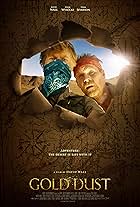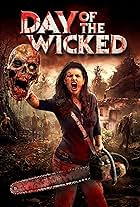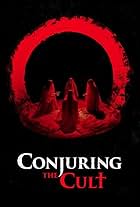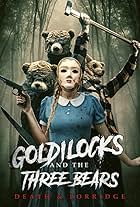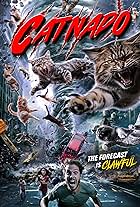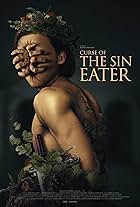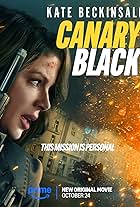Gold Dust
YOUR RATING
Sophie's life intertwines with Jonny, a reformed addict artist. Their love flourishes but faces a harsh test when Jonny's past addiction resurfaces, pushing Sophie's strength and devotion to... Read allSophie's life intertwines with Jonny, a reformed addict artist. Their love flourishes but faces a harsh test when Jonny's past addiction resurfaces, pushing Sophie's strength and devotion to the brink.Sophie's life intertwines with Jonny, a reformed addict artist. Their love flourishes but faces a harsh test when Jonny's past addiction resurfaces, pushing Sophie's strength and devotion to the brink.
Photos
- Director
- Writers
- All cast & crew
- Production, box office & more at IMDbPro
Storyline
Featured review
Gold Dust is a contemplative film exploring the nuanced complexities of human relationships, societal pressures, and inner struggles. At its core, the movie follows the disjointed and often awkward conversations between two characters and Sofie, who explore deeper themes of identity, personal desires, and the societal expectations that shape their lives. What drew me in was the film's unconventional structure. From the beginning, Gold Dust clarifies that this is not a traditional narrative with a straightforward plot. Instead, the story unfolds through fragmented dialogues that feel like stream-of-consciousness exchanges, where Jonny and Sofie jump from trivial daily routines to philosophical musings. There is no clear resolution, which mirrors life's uncertainty- a theme reflected throughout the film. One of its main themes is the film's examination of how cultural standards influence individual identities. Sofie and Jonny, in one scene, talk about "going outside society." This scene is compelling because it captures the essence of the movie: the characters want to deviate from the norm but need help to achieve it. The pressure to perform well in school or at work is hinted at by Sofie's remark that she reads for twelve hours daily. Many people will be able to relate to the discussions' reflection on the conflict between living for oneself and living to please others.
The film's portrayal of human vulnerability is another aspect that stands out. Jonny and Sofie's interactions often teeter on the edge of awkwardness, yet these moments also provide space for deep reflection. The awkwardness is not just for show; it opens the door to more serious discussions about fear and emotional vulnerability. In one scene, Jonny asks Sofie what she fears most, and her answer is to let go-points of both characters' emotional struggles. This fear of losing control, whether over one's emotions or life choices, is a recurring theme that resonates throughout the film. Visually, Gold Dust is minimalist, which enhances the focus on the characters' dialogue and internal states. The lack of elaborate settings or dramatic scenes makes the film feel intimate, almost like a stage play. The slow pacing mirrors the hesitations and uncertainties in the characters' emotional journeys, with long pauses and silences forcing viewers to reflect on what remains unspoken. The film leaves much room for interpretation, as it avoids providing straightforward answers to the dilemmas faced by its characters. This open-endedness may be a double-edged sword. While it allows viewers to engage deeply with the themes, it also requires patience and introspection. Some might find the lack of a clear resolution frustrating, but that was part of the film's charm for me. Life, after all, rarely provides tidy conclusions. The characters in Gold Dust are left with unanswered questions, just as we are, which feels like an honest reflection of reality.
The film's portrayal of human vulnerability is another aspect that stands out. Jonny and Sofie's interactions often teeter on the edge of awkwardness, yet these moments also provide space for deep reflection. The awkwardness is not just for show; it opens the door to more serious discussions about fear and emotional vulnerability. In one scene, Jonny asks Sofie what she fears most, and her answer is to let go-points of both characters' emotional struggles. This fear of losing control, whether over one's emotions or life choices, is a recurring theme that resonates throughout the film. Visually, Gold Dust is minimalist, which enhances the focus on the characters' dialogue and internal states. The lack of elaborate settings or dramatic scenes makes the film feel intimate, almost like a stage play. The slow pacing mirrors the hesitations and uncertainties in the characters' emotional journeys, with long pauses and silences forcing viewers to reflect on what remains unspoken. The film leaves much room for interpretation, as it avoids providing straightforward answers to the dilemmas faced by its characters. This open-endedness may be a double-edged sword. While it allows viewers to engage deeply with the themes, it also requires patience and introspection. Some might find the lack of a clear resolution frustrating, but that was part of the film's charm for me. Life, after all, rarely provides tidy conclusions. The characters in Gold Dust are left with unanswered questions, just as we are, which feels like an honest reflection of reality.
Details
- Release date
- Country of origin
- Language
- Also known as
- Gullstøv
- See more company credits at IMDbPro
Box office
- Budget
- $100,000 (estimated)
- Color
Contribute to this page
Suggest an edit or add missing content




